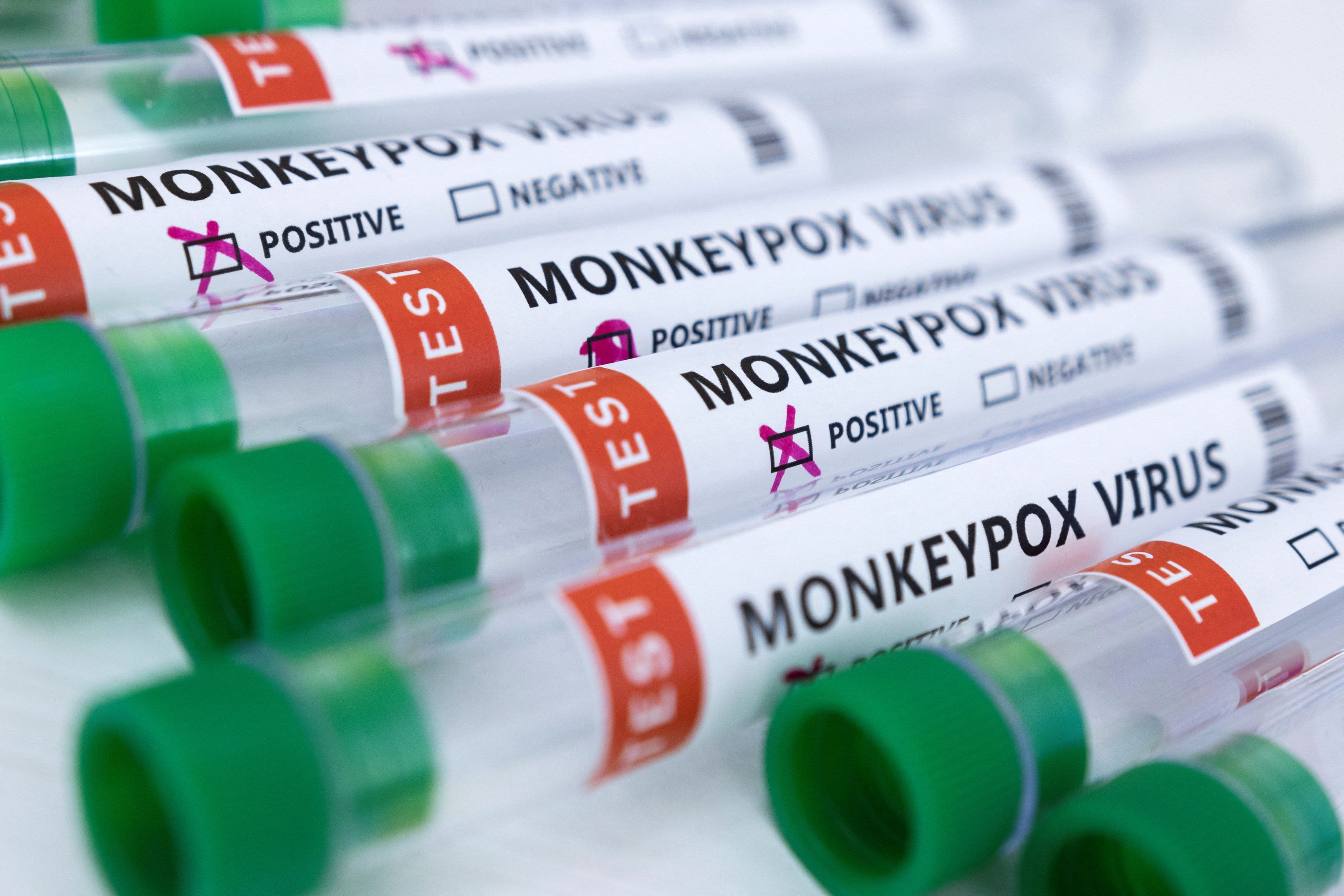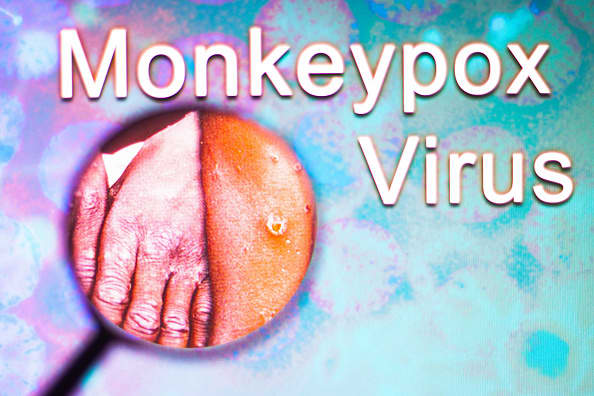New York now has nine confirmed cases of monkeypox, according to the state's health department, including the first case to be found outside of NYC.
The number of cases in the city has gone up from just two on June 1 (less than a week ago), to eight as of Tuesday, the New York State Department of Health announced. The other monkeypox case was found in Sullivan County.
Each of the cases are confirmed to be of orthopoxvirus; The monkeypox virus belongs to the orthopoxvirus family.
Get Tri-state area news delivered to your inbox.> Sign up for NBC New York's News Headlines newsletter.
"As the risk for monkeypox remains low, we urge New Yorkers to be alert and seek care if you have symptoms consistent with monkeypox, as we continue to learn more about this virus," said State Health Commissioner Dr. Mary Bassett. "Healthcare providers throughout the state have been notified, our Wadsworth Center public health lab will continue to test for orthopoxvirus, and we will work with local health departments and public health experts to protect New Yorkers."
As of Monday, 1,019 confirmed and suspected cases of monkeypox have been reported in 29 countries, according to the CDC. The UK has recorded the most cases by far, with 302 suspected and confirmed infections. It is followed by Spain with 198, Portugal with 153 and Canada with 80.
In the U.S., there were 30 confirmed cases across 13 states as of Monday evening, according to the CDC.
Also on Monday, the CDC ramped up its monkeypox alert to level 2 and encouraged people to "practice enhanced precautions" to stem the recent outbreak. Under that level of guidance, people are encouraged to "practice enhanced precautions" to stem the outbreak. That is one step below the CDC recommending people "avoid nonessential travel."
Even though the CDC said the risk to the general public remains low, the new level of alert encourages avoiding close contact with those who are sick, including those with skin or genital lesions, as well as sick or dead animals. Those displaying symptoms, like unexplained skin rash or lesions, are also urged to avoid contact with others and to reach out to health-care providers for guidance.
It is also advised to avoid eating meat that comes from wild game, or using products (such as creams, powders or lotions) that come from wild animals from Africa.
Two prominent infectious disease experts warned over the weekend that time was of the essence to stop the spread of the virus, and that the "window is closing" to contain it before it becomes endemic. That came just days after the World Health Organization said it didn't know if the outbreak was "too late to contain."
In a sign that the situation may be more advanced than first understood, the CDC said Friday there appear two be two separate and distinct outbreaks going on outside of Africa, with some virus samples seen in the United States being distinct from the samples seen in the European outbreak.
How Do You Get Monkeypox?
The vast majority of U.S. cases are in men who have sex with men, and many patients have reported international travel. The CDC said last week that all patients nationwide are recovering, or have already recovered.
Agency officials, in a briefing with reporters Friday, stressed that the public health risk remains low, vaccine stockpiles are ample for now, and that it was "too early to know" if the virus was going to become endemic in the United States.
The agency is asking doctors to test more aggressively for monkeypox, even if they think a patient is presenting with symptoms of another sexually transmitted illness.
"They should test for monkeypox even if they think they might have a positive test for a much more common STI," Jennifer McQuiston, deputy director of the CDC's Division of High Consequence Pathogens and Pathology, said.
Of the first 17 confirmed cases, all 17 had a rash and most had fatigue or chills. A majority had rashes on their arm or chest, though many other spots were affected as well.
Monkeypox 'Window Closing'
As the virus spreads, those with a background in the history of infectious diseases warn that time is of the essence to contain it.
"The window is CLOSING. If we can't contain now, it means much more work later. Again, #LGBTQ groups do not seem to see the urgency of the moment, rightly worried about stigma, but not interested in throwing down to take care of this outbreak ourselves," Yale epidemiologist and AIDS activist Gregg Gonsalves tweeted Saturday morning.
His peers agreed and called on the LGBTQ community to make a more aggressive effort to fight the spread.
"The window to eliminate monkeypox is closing. LGBTQ groups could use #GayPrideMonth #gaypride2022 events to educate, screen, test & vaccinate… before it’s too late," Celine Gounder, an NYU infectious diseases specialist and former Biden Administration COVID advisor, tweeted in response to Gonsalves.
Some local governments are taking matters into their own hands. On Monday, public health officials in Montreal began offering vaccinations to people who'd been exposed to someone with monkeypox, and to men who have sex with men and who've had at least two partners in the last 14 days.
In the United States, the federal Department of Health and Human Services ordered another 36,000 doses of vaccine transferred from their manufacturer to a national stockpile.
What Is Monkeypox?
Monkeypox was first discovered in 1958, when outbreaks occurred in colonies of monkeys kept for research -- resulting in its name. (What you need to know about monkeypox.)
The first case in a human was reported in 1970 in the Democratic Republic of the Congo, which still has the majority of infections. Other African countries where it has been found: Cameroon, Central African Republic, Cote d’Ivoire, Democratic Republic of the Congo, Gabon, Liberia, Nigeria, Republic of the Congo and Sierra Leone.
Human symptoms of monkeypox are similar to but milder than the symptoms of smallpox, the CDC says. It presents itself as a flu-like illness accompanied by lymph-node swelling and rash on the face and body.
Monkeypox starts off with fever, headache, muscle aches, and exhaustion. Monkeypox also causes lymph nodes to swell, something that smallpox does not. The incubation period is usually 7−14 days but can range from 5−21 days.
The CDC is urging healthcare providers in the U.S. to be alert for patients who have rashes consistent with monkeypox, regardless of whether they have traveled or have specific risks for monkeypox. See more information from the travel notice here.



